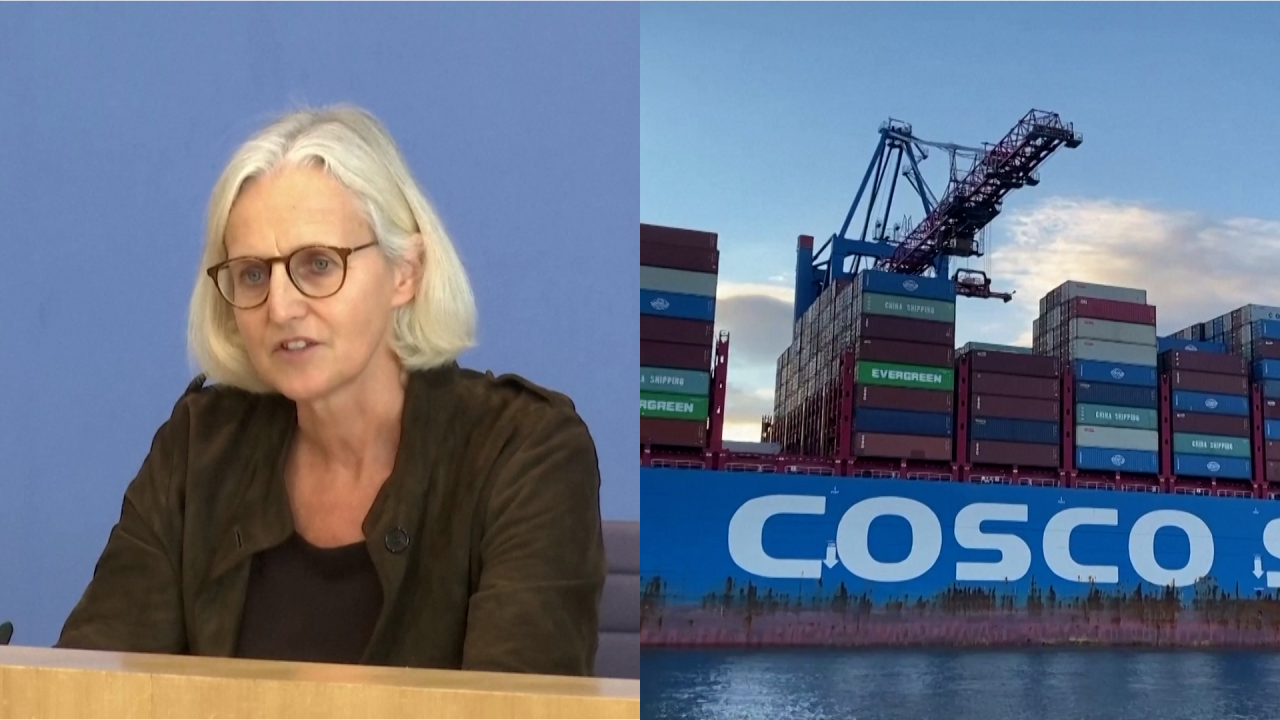
Germany says controversial Chinese stake in Hamburg port to go ahead
- Berlin had been reassessing whether to let the deal proceed amid security concerns over the sale of what has been classed as critical infrastructure
- State-owned Chinese shipping giant Cosco will be allowed to buy an up to 24.9 per cent stake in the Tollerort container terminal
The German government said on Wednesday that it would allow a Chinese firm to buy a stake in a Hamburg port, after the terminal was classed as critical infrastructure.
The government controversially gave the go-ahead in October for state-owned Chinese shipping giant Cosco to buy up to a 24.9 per cent stake in the Tollerort container terminal in Hamburg.
The green light came despite security concerns over the sale of the infrastructure to Chinese investors, with Chancellor Olaf Scholz resisting calls to ban the sale outright.
In April, Berlin said it was reassessing whether to allow the sale to go ahead.
But on Wednesday a government statement said the original approval of a sale of less than 25 per cent had not changed.
No more details were given about the reasons behind the decision.
Cosco initially sought to purchase a larger 35 per cent stake in the port before a compromise agreement was announced.
Germany has been re-evaluating its economic relationship with China amid concerns over human rights and the communist country’s ties with Russia, as well as the escalation of tensions over Taiwan.
In November, Germany blocked the sale of two chip makers to Chinese investors because of security concerns around the key technology.
Germany has also capped investment guarantees for German companies doing business in China, as Europe’s largest economy looks to reduce its dependence on Beijing.

.png?itok=arIb17P0)
